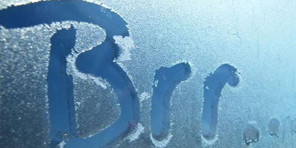JEFFERSON CITY – Bitterly cold temperatures and dangerously cold wind chills are forecast for this week. The National Weather Service forecast includes Winter Storm and Wind Chill Watches in effect from Dec. 22 through Dec. 24. Dangerously low temperatures are expected to reach single digits with potentially life-threatening wind chill values expected as low as -35°.
Prolonged exposure to the cold can lead to serious health issues including frostbite, hypothermia, and in extreme cases, death. Therefore, the Missouri Department of Health and Senior Services (DHSS) urges residents to minimize outside activities during the extreme cold and follow these safety tips:
Stay indoors in a warm area. If heat is not available, warming centers can be located on this online map or by calling 2-1-1
Check on neighbors, especially senior citizens and the disabled. Make sure they are using adequate and safe heating sources.
If you do have to be outdoors, dress in several layers of loose-fitting, layered, lightweight clothing. The space between these layers works as insulation to help keep you warmer.
Wear something on your head and wear water-repellent boots.
Protect your ears and face. Wear a scarf to help protect your lungs from cold air – it will also protect your ears and face.
Carry extra clothes with you such as socks, gloves, hats and jackets so you can change them if they get wet.
Watch for signs of frostbite and hypothermia.
Frostbite causes a loss of feeling and pale or waxy white appearance of extremities, such as fingers, toes, ear lobes or the tip of the nose. Other signs may include numbness, a tingling or stinging sensation in the affected body part, and reduced blood flow. If any of these symptoms are present, seek help immediately.
The warning signs of hypothermia include uncontrollable shivering, memory loss, disorientation, slurred speech, drowsiness and apparent exhaustion. In infants, the skin will turn bright red and cold, and they may present with a very low energy level. If any of these signs appear, get the individual to a warm location immediately and call 911 for medical assistance.
Increase fluid intake regardless of your activity level. Don’t wait until you feel thirsty to drink fluids. Ensure infants and children drink adequate amounts of liquids. Avoid alcohol.
Make sure your car is properly winterized. Keep your gas tank filled. Prepare an emergency kit including blankets, a flashlight, waterproof matches, non-perishable foods, and water.
Ensure you have sufficient heating fuel, as well as alternate emergency heating equipment in case you lose electricity. When using alternative heating sources, such as a generator, a fireplace, wood stove, or space heater, take necessary safety precautions:
Make sure all heating devices are properly ventilated and always operate a generator outdoors and at least 20 feet away from any window, door or vent in your home. Improper heating devices can lead to dangerous carbon monoxide buildup in the home.
Test your smoke alarms and carbon monoxide detectors.
Carbon monoxide is an odorless, colorless gas that can cause flu-like illness or death. Carbon monoxide poisoning can happen during extreme cold weather when individuals try warming their homes through unconventional methods. If you suspect carbon monoxide poisoning, call 911 immediately and get the exposed individual to fresh air.
Never heat your home with a gas stove, oven, kerosene heater or charcoal barbecue grill.
Keep a fire extinguisher handy and ensure everyone knows how to use it properly.
Place anything that can burn easily at least three feet away from space heaters.
Do NOT run a car or truck inside a garage that is attached to your house, even if you do leave the door open.
Limit outdoor time for your pets. They are also susceptible to the extreme cold temperatures.
Additional information about being safe, aware and prepared for extreme cold weather can be found here.

